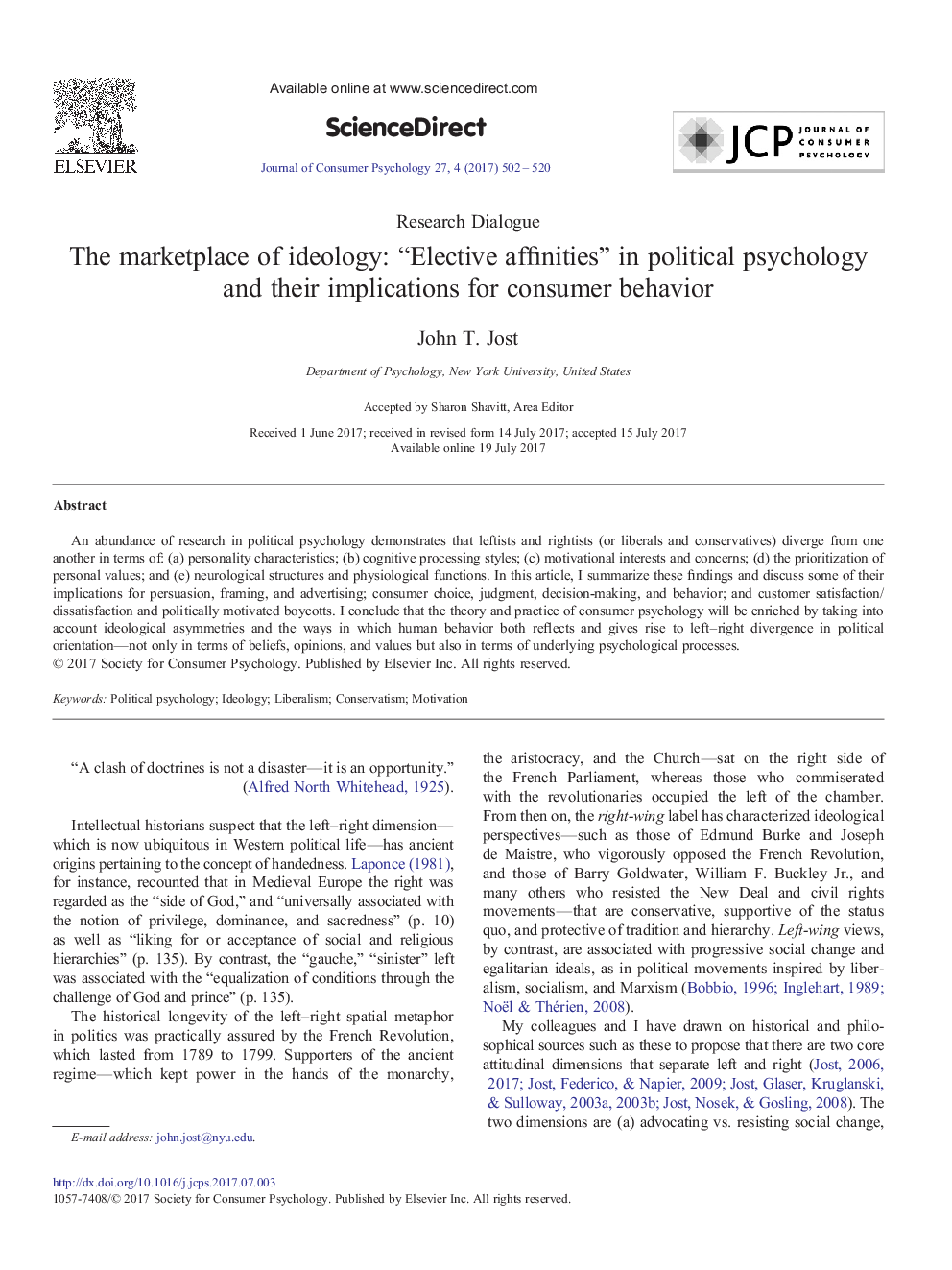| Article ID | Journal | Published Year | Pages | File Type |
|---|---|---|---|---|
| 5034225 | Journal of Consumer Psychology | 2017 | 19 Pages |
An abundance of research in political psychology demonstrates that leftists and rightists (or liberals and conservatives) diverge from one another in terms of: (a) personality characteristics; (b) cognitive processing styles; (c) motivational interests and concerns; (d) the prioritization of personal values; and (e) neurological structures and physiological functions. In this article, I summarize these findings and discuss some of their implications for persuasion, framing, and advertising; consumer choice, judgment, decision-making, and behavior; and customer satisfaction/dissatisfaction and politically motivated boycotts. I conclude that the theory and practice of consumer psychology will be enriched by taking into account ideological asymmetries and the ways in which human behavior both reflects and gives rise to left-right divergence in political orientation-not only in terms of beliefs, opinions, and values but also in terms of underlying psychological processes.
